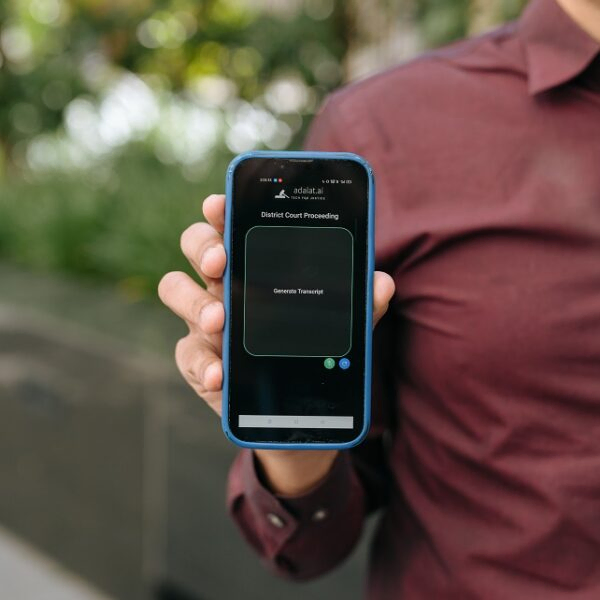
Adalat AI is a non-profit legal tech organization reducing judicial backlogs that result in millions of predominantly low-income and marginalized people languishing in prisons without convictions by empowering judicial workers and improving equity of the justice system — first in India and then beyond. Today, Adalat AI is integrated into over 2,000 courts across eight states in India and is on track to reach half of India’s courts by the end of 2025.
The Problem
India’s judicial system is facing a severe crisis with over 50 million cases backlogged, which would take more than 300 years to resolve at the current pace. A major contributing factor is the shortage of skilled stenographers forcing many judges to transcribe proceedings by hand. As a result, 60% of cases are delayed at stenography-intensive stages like recording of evidence. The issue is compounded by India’s complex language diversity, with over 140 dialects and the requirement for translation into formal English for court proceedings.
This burden disproportionately affects vulnerable groups, who make up 35% of the population but two-thirds of criminal cases awaiting trial. Many are imprisoned without conviction, unable to afford bail, and trapped in a system that moves too slowly. Today, over 400,000 people are held in jail without trial, facing extended pre-trial detention, loss of income, and deep social stigmatization.
The Solution
Adalat AI is solving the chronic issue of judicial delays through cutting-edge artificial intelligence solutions tailored to courtroom personnel’s specific needs. Rather than replacing human workers, Adalat enhances the efficiency of stenographers, judges, and court staff by providing AI-powered tools, such as real-time speech-to-text transcription, automated court workflows, and a mobile app for dictation. These innovative tools streamline processes, reduce bottlenecks, and expedite case resolutions. By integrating AI into courtroom operations, Adalat addresses core inefficiencies, ensuring that justice is delivered in a timely and equitable manner. The platform’s AI models handle complex legal jargon and multiple languages, including Indian vernacular languages, which enables courts to digitize and streamline previously manual tasks.
Since launching in 2024, Adalat has already reached 15% of India’s courtrooms and aims to cover 50% of the country’s courts by the end
of 2025. Their technology is operational in states like Delhi, Karnataka, and Orissa, reducing case timelines by 30–50% and alleviating pressure on overburdened courts. By 2026, Adalat plans to deploy in over 10,000 courts and all courts in India by 2027. With plans to expand to over 20,000 courts in 25 states, Adalat is also positioning for global expansion, particularly to other common law systems in the Global South, with interest already from African and Southeast Asian countries. By FY2027, Adalat aims to operate in five additional countries, ensuring timely access to justice for millions more.